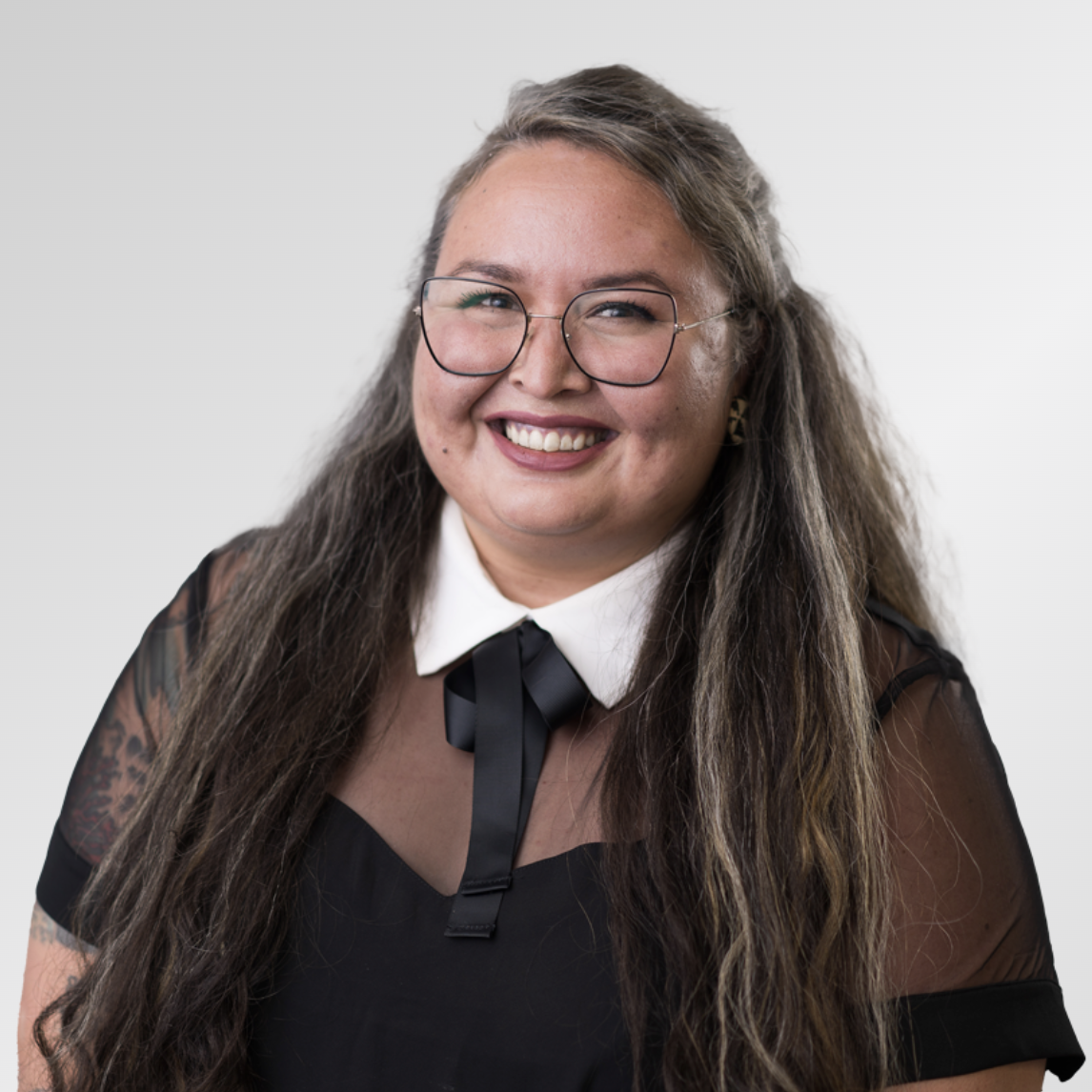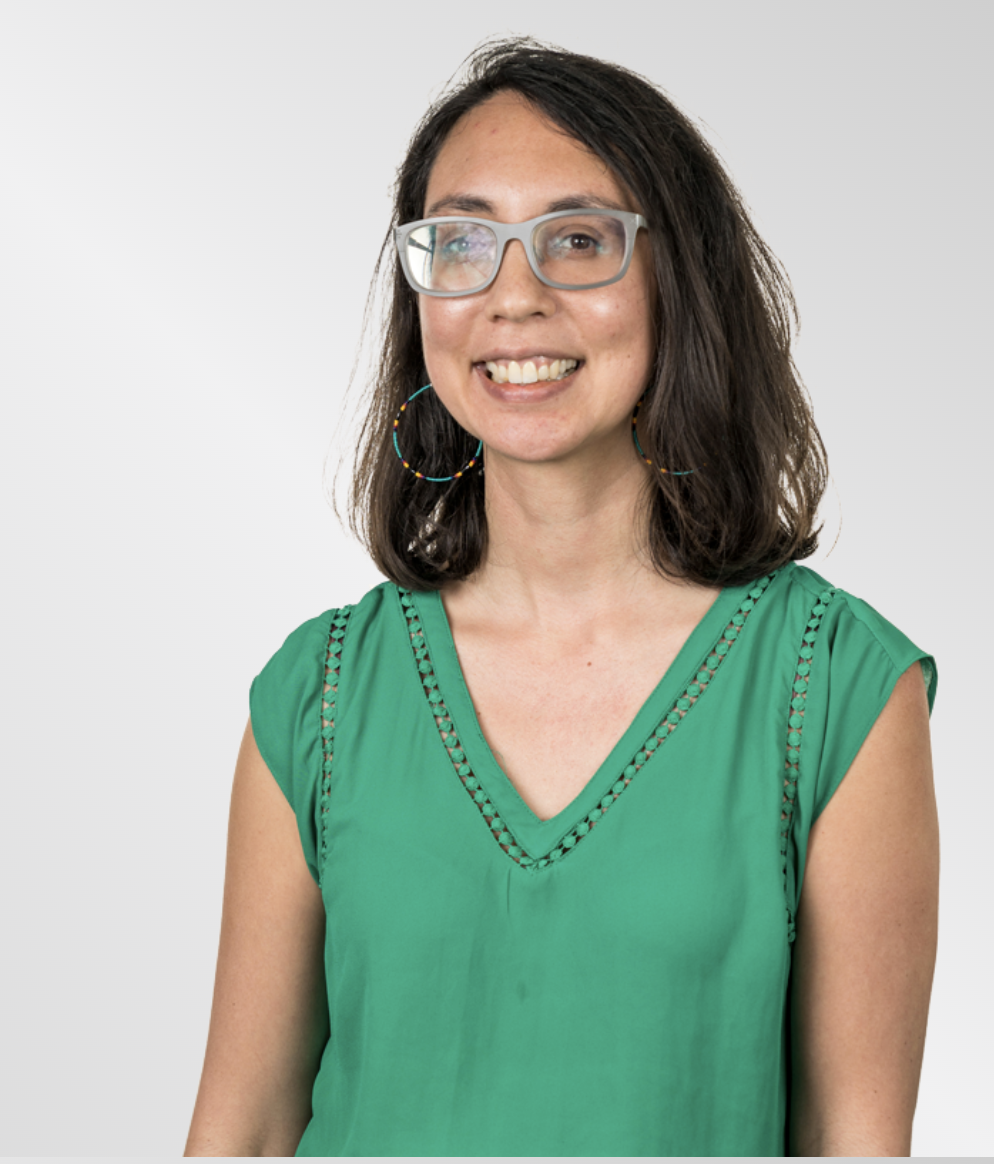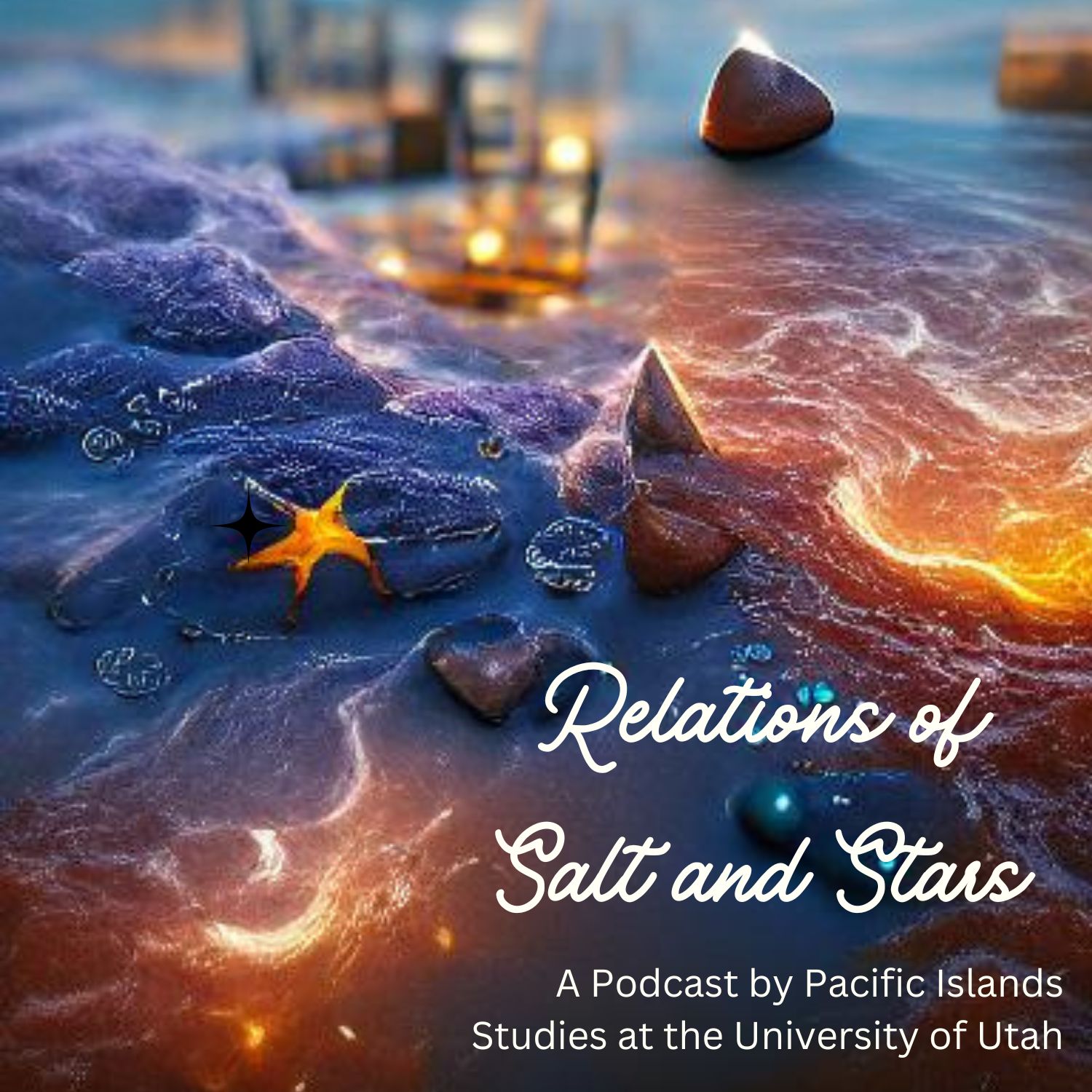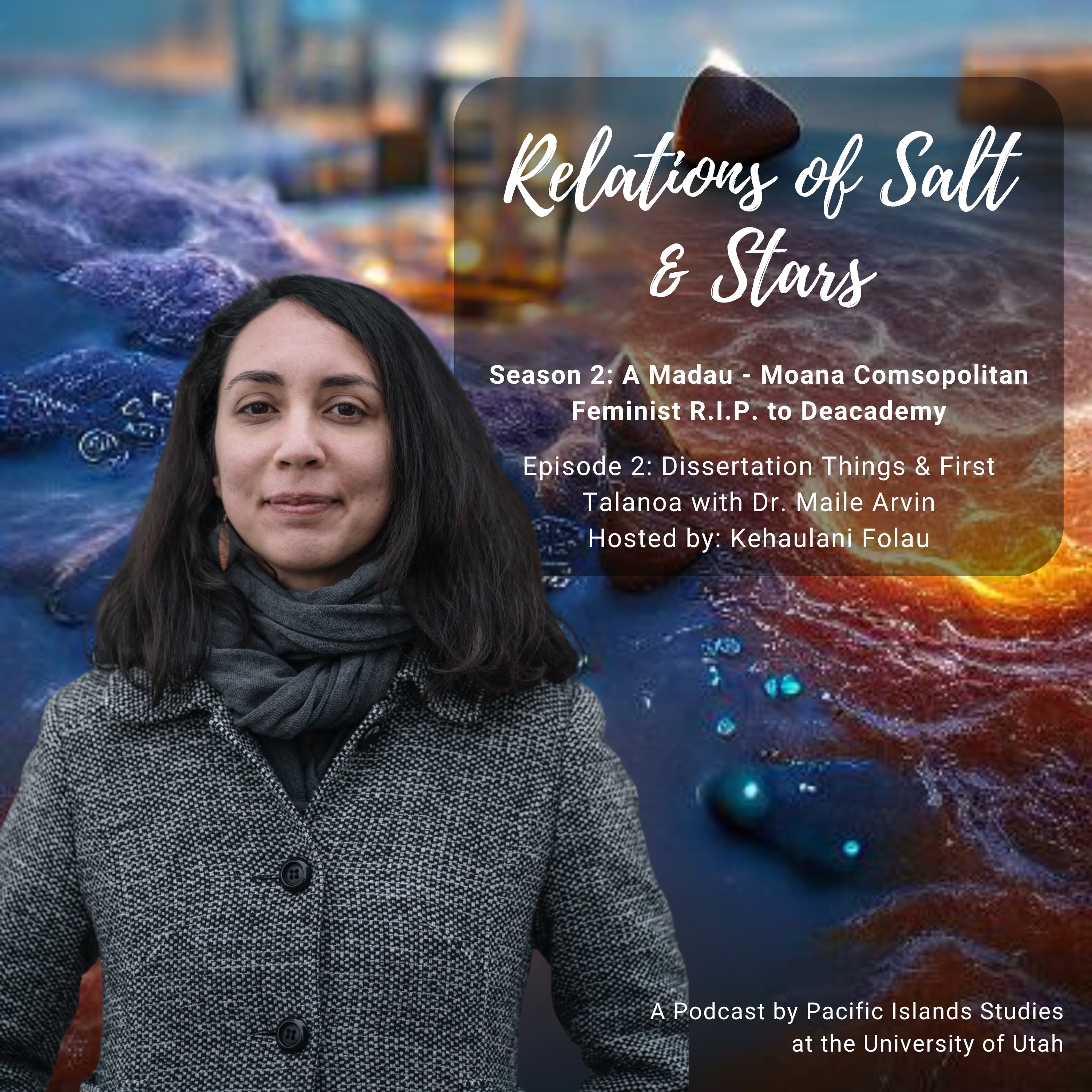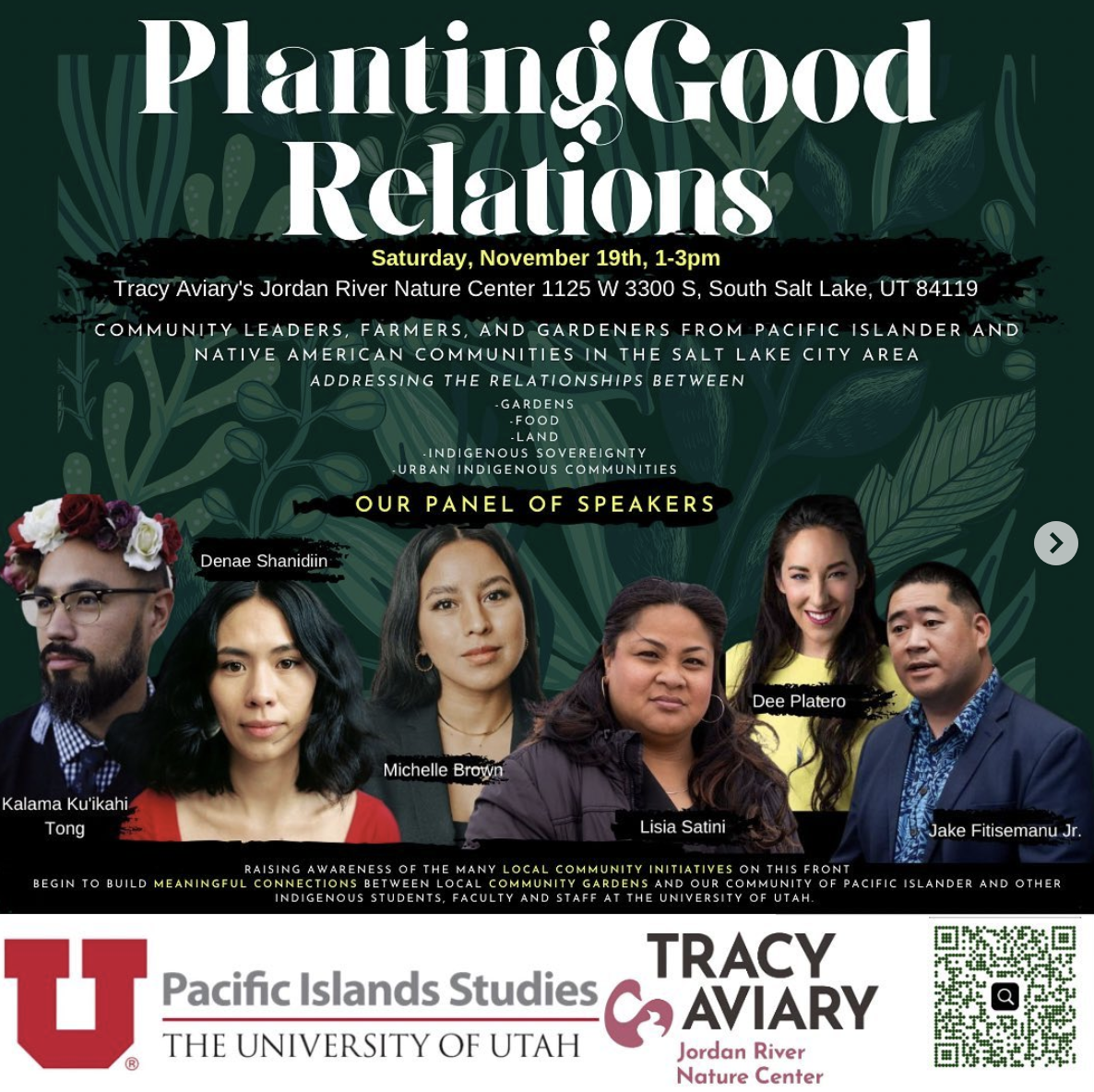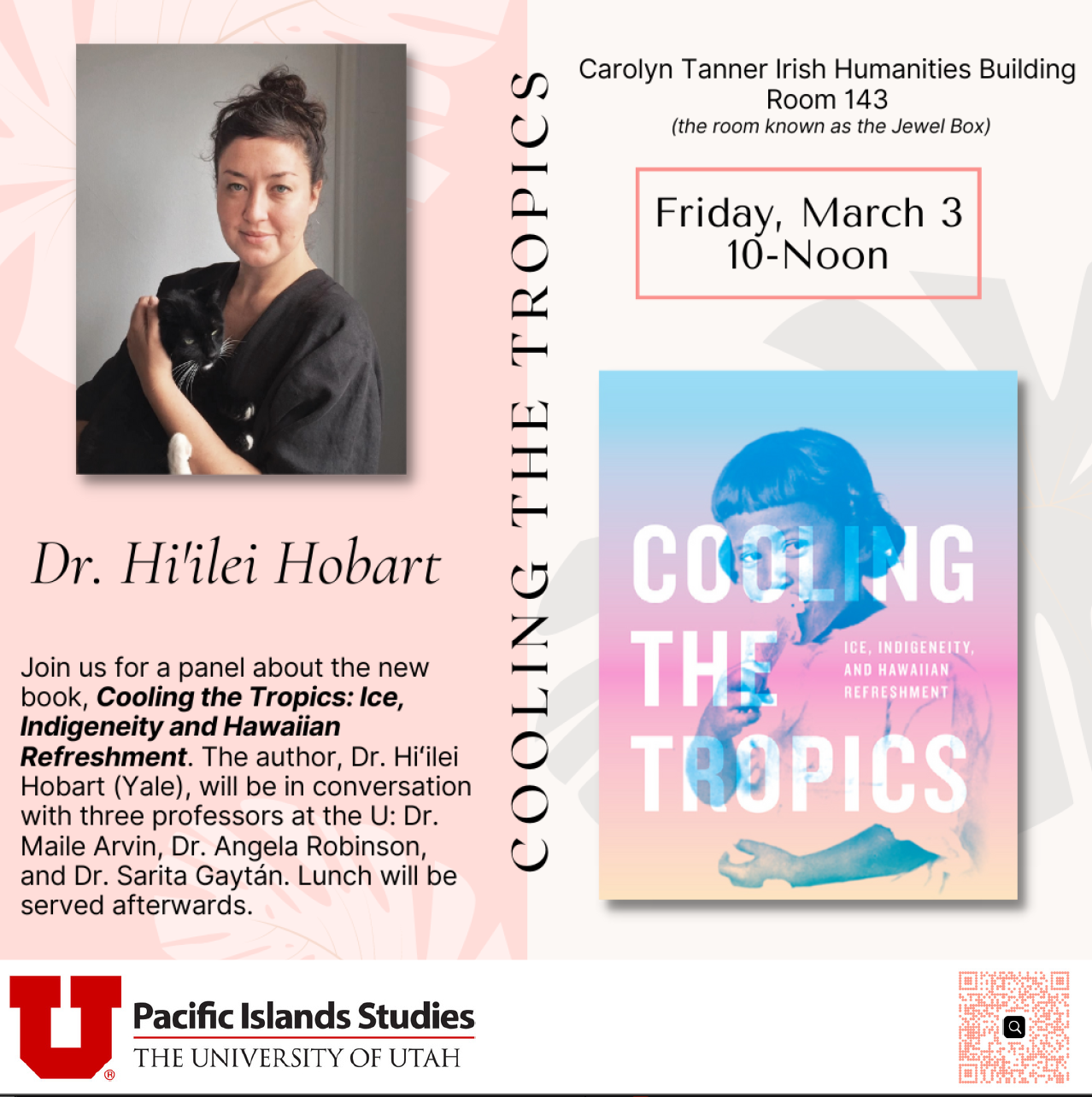Episode Transcript
Angela: Our ancestors traveled through salt and stars, and so do contemporary Pacific Islander communities today. In this podcast, we consider how to build good relations - with the communities we come from in Oceania, the communities we live with here in the Salt Lake City area, and especially the Indigenous communities whose lands we live on.
Maile: As Pacific Islander people who live in Utah, we are nourished by the lands of the Ute, Goshute, Shoshone, and Paiute peoples. We are far from the ocean, but close to the salt water of the Great Salt Lake. We are far from the night sky over our home islands, but can look up and see the same stars.
Angela: Join us as we explore and build Relations of Salt and Stars.
Maile: Relations of Salt and Stars is a new podcast produced by the Pacific Islands Studies program at the University of Utah, and hosted by faculty members Dr. Angela L. Robinson (who is Chuukese) and myself, Dr. Maile Arvin (and I'm Kanaka Maoli or Native Hawaiian). With the name “Relations of Salt and Stars,” we invoke the ties historically forged between the Pacific Islands and Utah, as well as the ones still in formation.
Angela: Ran allim! Itei Angela. Ngang fin wito, ine fin pihedar afakuran alengeitaw. Hello! My name is Angela L. Robinson. I’m from the Wito clan of Pihedar in Chuuk, Micronesia, where my mother is from, and my maternal grandfather’s clan is the Alengeitaw. I grew up in Hawaii, but live in Salt Lake City, Utah now. I’m an assistant professor in Gender Studies and Environmental Humanities at the University of Utah, where I also work with the Pacific Islands Studies program. My research looks at the effects of climate change for Indigenous peoples, particularly Pacific Islanders, and how Indigenous peoples are addressing climate change in unique and innovative ways that challenge what it means to be human in this day and age. Here in Salt Lake City, I am a part of the Nuanua Collective, which is a local grassroots organization for queer and trans Pacific Islanders. I love exploring Utah with my partner and our two dogs by camping, soaking in hot springs, trying new brunch spots, and befriending our neighborhood squirrels, birds, deer, and other critters.
Maile: Aloha mai kākou. ʻO Maile Renee Arvin koʻu inoa. No Kenekuke mai au. He Hawaiʻi au. No Waimānalo koʻu makuahine. ʻO Awo koʻu inoa ʻohana Hawaiʻi. Hello! My name is Maile Arvin. I am Native Hawaiian. I was born in Kentucky but my mom is from Waimānalo on the island of Oʻahu. My Hawaiian family are the Awos. At the University of Utah, I am an associate professor in History and Gender Studies, and the current director of Pacific Islands Studies. I have lived in Utah for over five years now. My first book, that I published with Duke University Press in 2019, is titled Possessing Polynesians: The Science of Settler Colonial Whiteness in Hawaiʻi and Oceania. It’s about how white social scientists developed an idea that Polynesians were an “almost white race,” how this idea was used to help structure settler colonialism in Hawai’i and how Native Hawaiians and other Indigenous Pacific Islanders have and continue to respond. I am currently doing research on the history of so-called training schools and reformatories in Hawai’i from the Hawaiian Kingdom era through the Territorial period. I recently wrote an essay about this history in response to the inclusion of some of these institutions in the federal Indian boarding school report issued by the US Department of Interior in May, which I will link in the show notes. I am so excited to be doing this podcast with Angela, and to be able to talk together about relationships between our communities, our research, and more. We promised ourselves that doing this will be work but will also be fun! I live with my partner and our three year old daughter. We love going to parks and seeing the dinosaur skeletons at the Natural History Museum. As weʻll talk about more this season, I also love gardening.
Angela: This podcast, and much of the work of Pacific Islands Studies at the University of Utah, is supported by a Mellon Foundation grant. Pacific Islands Studies at the University of Utah is a growing interdisciplinary program, grounded in the School for Social and Cultural Transformation (Transform for short), which also houses the Divisions of Ethnic Studies and Gender Studies, as well as the Disability Studies program. Pacific Islands Studies faculty here, besides ourselves, include Kēhaulani Vaughn (Education, Culture and Society), Adrian Bell (Anthropology), Kalani Raphael (Medicine) and Matt Basso (History), among others.
Maile: With Dr. Vaughn, Angela and I are currently leading the implementation of a $1 million Mellon Foundation grant that we were awarded to build an international network of Pasifika and Indigenous scholars, establish a Center for Pasifika and Indigenous Knowledges at the University of Utah, as well as a podcast and graduate certificate. This work builds on our inaugural Mellon Foundation grant, for $600,000, awarded in 2018. We currently offer a Pacific Islands Studies certificate (akin to a minor) for undergraduates, and programming to support and advance scholarship and organizing relevant to Pacific Islander communities locally and internationally.
Maile: One thing we are doing on the research side of things over the next three years, with the Mellon grant funding, is hosting working groups of Pacific Islander and other Indigenous Studies faculty. Each year, our research working group will be centered around a theme that animates the research of one of our faculty members. This year, the working group theme is Anti-colonial Ecologies, led by Angela, will include Kiristina Sailiata (Macalester), Christine Taitano DeLisle (Minnesota), and Uahikea Maile (Toronto). The group will meet over the year and decide on a project they will collaborate on. In spring or summer of 2023, they will hold some kind of public event as a culmination of their work - so stay tuned! In 2023-24, Dr. Vaughn will led a group around the theme of Trans-Indigeneity, and in 2024-25, Maile will lead a group around the theme of Indigenous oral histories.
Angela: So we have a lot of exciting things planned, and in the next few months, we are preparing new podcast episodes exploring the topic of anti-colonial ecologies. In conversation with Pasifika and Native community members in Utah, as well as Pacific Islander faculty located across North America, we will explore how climate change links the Pacific and the U.S. through the displacement and migration of Pacific Islanders, the disruption of Indigenous life and ways of being for both Pacific Islanders and Native nations, and the wellspring of Indigenous environmental and climate justice activism implementing innovative solutions to change these conditions.
Angela: In our next episode, we will share the stories of four different Indigenous & Pasifika-led community gardens and food projects here in Salt Lake City, as well as stories about our own relationships with gardens and gardening. If you’re in the area and would like to listen to this live, please join us at our event, Planting Good Relations on Saturday, November 19th from 1-3pm at the Tracy Aviary’s Jordan River Nature Center.
Here’s a preview:
Maile: It’s October, and I am harvesting a big bunch of cherry tomatoes from my garden. My big heirloom tomatoes didn’t grow so well this year - stink bugs and grasshoppers seem to have destroyed most of them despite my best efforts. The garden overall is slowing down but there are still a few cantaloupes and watermelons growing, and though I thought the pumpkin vines had been killed by squash bugs, a few new pumpkins have sprouted. Throughout this summer, my garden has surprised me and nourished me and my family. Do you have a garden, in your yard or your neighborhood? What are the smells, the tastes, the memories that gardening evokes for you? In gardening, we confront the deep-rooted traumas of colonialism and white supremacy, while we also cultivate healing, remembrance, and new life. **garden sounds–birds/dirt/etc
These are challenging political times. Tending to a garden reminds me of something abolitionist activist Mariame Kaba has famously said: “Hope is a discipline.” I turn this saying over in my head every time the news is outrageously grim. Some days I think it means that we are responsible for cultivating hope for ourselves and each other; that hope needs tending to, that it cannot be conjured simply in reacting to the latest Supreme Court decision. Some days I think this is really tough advice to follow. It can feel like a lot of responsibility to practice cultivating hope, just like it can feel overwhelming at times to care for a garden in a desert beset by heat, weeds, bugs, and birds. We don’t know if our hope will bear fruit. This reminds me of another quote by Anishinabe scholar, poet and activist Leanne Simpson, who said:
"So in Anishinaabeg philosophy, if you have a dream, if you have a vision, you share that with your community, and then you have a responsibility for bringing that dream forth, or that vision forth into a reality. That’s the process of regeneration. That’s the process of bringing forth more life—getting the seed and planting and nurturing it. It can be a physical seed, it can be a child, or it can be an idea. But if you’re not continually engaged in that process then it doesn’t happen."
Most of us live on Indigenous lands that are not ours. Many of us are grappling daily with the history and ongoing violence of the United States.
May our stories we share with you here spark seeds of hope, patience, and regeneration. May we continue to learn how to be together in this world in ways that bring forth more life. What will you tend to in your garden today?
Angela: Our theme song is “Lift Me Up” by Heydium.
Special thanks to the Mellon Foundation, the University of Utah’s School of Social and Cultural Transformation, the University of Utah’s College of Humanities, and the National Humanities Center, which hosted an intensive podcasting institute that we both attended and benefited from this past summer.
This has been Relations of Salt and Stars with hosts Maile Arvin and Angela L. Robinson. Follow the University of Utah Pacific Islands Studies program on Instagram at: uofupasifikascholars.
Kinisou chapur ...
Maile: and mahalo nui loa for listening. Join us next time.
